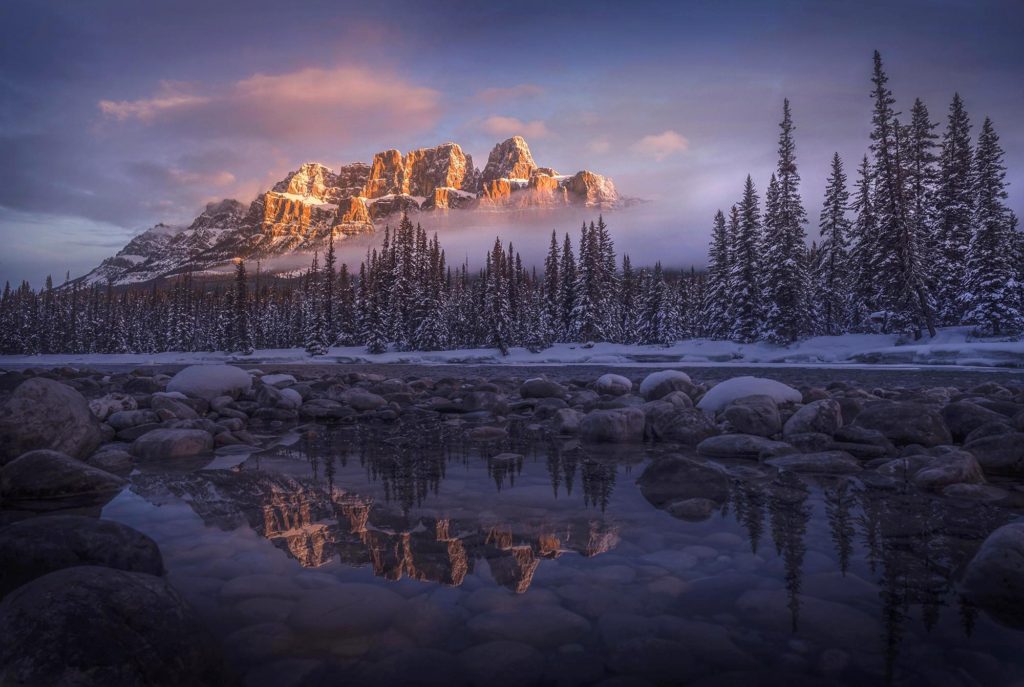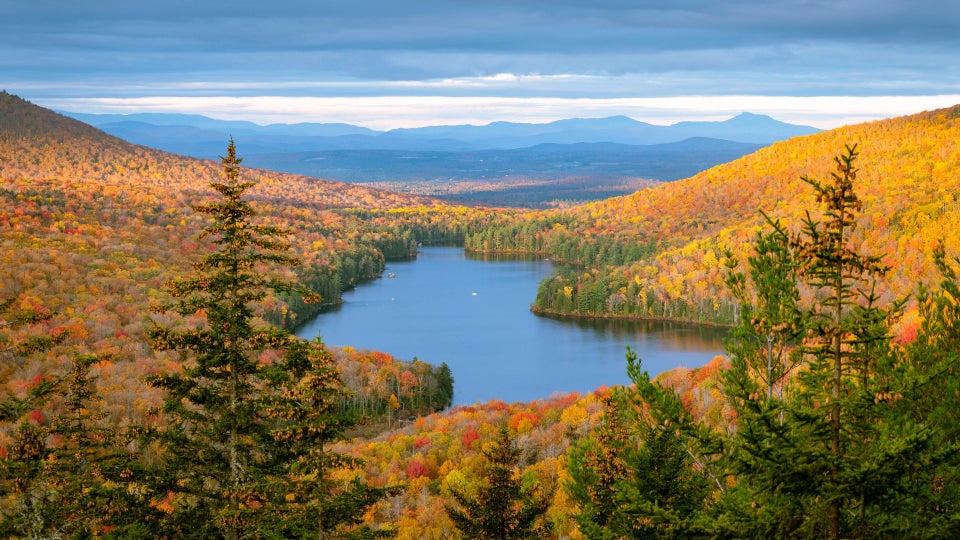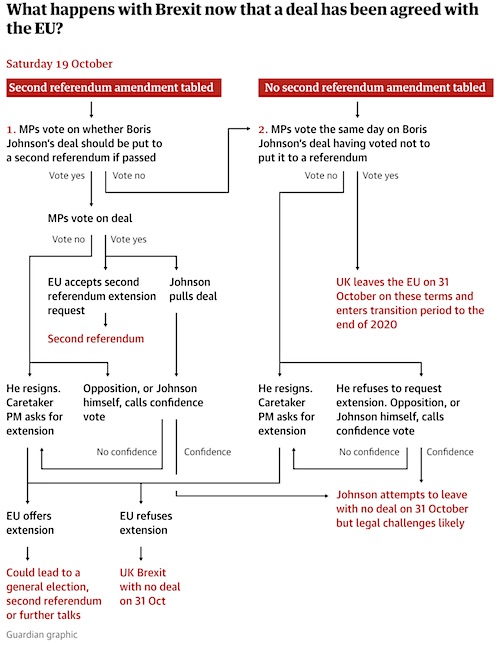Continue reading Sunday Cartoon Blogging – July 10, 2022
Tag: Boris Johnson
Saturday Soother – Brexit Edition, February 1, 2020
The Daily Escape:

Sunrise, Castle Mountain, Banff, Alberta, CN – 2019 photo by anitajwani
(Sunday Cartoons will appear on Monday)
Yesterday, Brexit became official. The UK is no longer part of the European Union.
The decision to stay or go consumed the UK to the exclusion of all else for four years. But listening to the BBC, they now are barely talking about it. For all the arguing about “Leave” or “Remain”, nothing much was really said about what would happen once things got concrete.
It may be hard for Americans to understand, since we are seduced by British accents, but the Tories are dumber than Republicans. One example of what changed on Friday, as the UK Independent observed:
“Brexit day is here, so let us celebrate our biggest victory – the freedom to drink very bad wine.”
So now comes the hard part. Britain has until the end of this year to make a new trade deal with Europe, the US, and with other non-EU countries. The EU is the UK’s largest trading partner. In 2018, UK exports to the EU were £291 billion (45% of all UK exports). UK imports from the EU were £357 billion (53% of all UK imports).
Services accounted for 41% of the UK’s exports to the EU in 2018. Financial services and other business services (including legal, accounting, advertising, research and development, architectural, and engineering) are important categories of services exports to the EU. They made up just over half of UK service exports to the EU in 2018.
Because of the EU’s structure, the parliaments of 27 countries will have to agree to any new deal. Imagine what a “No Deal” would mean starting in 2021: Both Britain and the EU would stand to lose a big chunk of their trade revenue.
It will be fascinating to see which side has the greater negotiating power. For example, the UK only accounts for just 6% of German exports of goods. It accounts for 6.8% of French exports.
The US needs a new trade deal with Britain as well. That deal will have to be approved by the US Congress. The US will want open access to the British markets for its agricultural and healthcare industries. That will conflict with Britain’s own farmers, food regulations and its National Health Service.
Britain will be negotiating these two large, and very complicated deals under severe time pressure. The EU might offer to extend the deadline, but Prime Minister Boris Johnson has said there will be no extensions. Despite Johnson’s promise, comprehensive trade deals take several years to complete, averaging 7-8 years. So there will be little deals announced in steps, with the simplest to agree areas finished first.
There are also the national issues: North Ireland will be integrated economically with Ireland. Having a customs border in the North Sea may prove unwieldy. Scotland preferred to remain with the EU, and voted “Remain”. After Parliament finally voted to Leave, Scotland asked to hold a referendum on leaving the UK, but were turned down by the Tories. They may try again to secede over the Prime Minister’s objections.
These new trade deals may be on less favorable terms than what the Tories told the voters. As an example, one argument for Brexit was that the UK would regain exclusive fishing rights within its economic zone. But some EU countries will likely ask for additional fishing rights in British waters in exchange for something Britain urgently needs.
We won’t know the outcome for five to ten years from now, but it’s likely that Great Britain will be less great than it is today.
What with the impeachment show drawing to a conclusion without calling witnesses, and the impending food fest of Super Bowl Sunday, it’s time for our Saturday Soother.
Our one oasis of calm in a week of crisis.
Let’s start by brewing up a big mug of Ethiopia Shaskiso Natural ($18/12oz.) roasted by Michigan’s own Battlecreek Coffee Roasters. The roaster says it tastes of strawberry and cocoa supported by spice-toned florals.
Now, settle back by the fire and listen to Telemann’s Concerto in D major for Violin, Cello, Trumpet and Strings, played live by the Bremer Barockorchester, in 2015:
Those who read the Wrongologist in email can view the video here.
Saturday Soother – Brexit Edition, October 19, 2019
The Daily Escape:

Autumn at Kettle Pond, Groton VT – October 2019 photo by tommmmmm
Most Americans haven’t followed closely the Brexit odyssey in the UK. Even if you know only a little, you are probably aware that the UK voted 52% to 48% in a referendum to leave the European Union (EU) in 2016. UK Prime Minister Theresa May then negotiated a divorce agreement with the EU, but that agreement was rejected three times by Parliament.
Then Boris Johnson, also of the Tory Party, became Prime Minister. He’s said the UK would leave the EU with or without an agreement on Brexit. Over the past few days, Johnson seems to have made a new deal with the EU. Here’s a capsule summary of the state of play in England from Market Watch: (brackets by Wrongo)
“Boris Johnson has signed a deal [with the EU] he said he didn’t need, creating a border he didn’t want, under the authority of a Court he didn’t accept, to be submitted to a Parliament he doesn’t control.”
While Johnson is calling this a “new” agreement, 95% of the 293-page agreement is the same as May’s. The changes mostly only apply to the controversial “Irish backstop.” In order to prevent a hard border with customs checks between Northern Ireland and the Republic of Ireland, the original withdrawal agreement stated that the UK as a whole would remain in the EU customs union.
That was a non-starter for the British Brexiteers, who turned it down under May. Under the Johnson deal, the UK will leave the customs union. This will allow the UK to negotiate its own trade agreements outside of the EU.
The catch is that while Northern Ireland will technically be out of the customs union, it will continue to operate under the EU’s customs rules. In practice, this means that goods being sent from Great Britain to Northern Ireland will have to be checked at points of entry. If there’s a chance those goods could be sent on to the Republic of Ireland, or to the EU, duty will have to be paid on them. This concession was necessary to get the Republic of Ireland to agree to the deal. Goods from the EU will pay a duty in Northern Ireland unless they are headed to the Republic.
All this might sound technical, but the deal effectively creates an economic border somewhere in the Irish Sea, separating Northern Ireland from the rest of the UK, something both May and Johnson had vowed never to do. It’s a big concession.
In UK slang, this whole thing might be called a “dog’s breakfast”. In any event, Parliament will convene at 9.30am on Saturday (4:30am EDT) to consider Johnson’s Brexit deal. This is the first time Parliament will have met on a Saturday since the Falklands War.
The session will start with questions of the Prime Minister, followed by a motion to vote on the deal, followed by possible amendments to the deal. It might take all day to actually get to an up or down vote on Brexit. Here’s a helpful diagram:

The reality is probably way more complicated than the chart. By striking this deal, Johnson has basically sold out a key ally, the Democratic Unionist Party. The DUP, which controls 10 seats in Parliament, represents Northern Ireland. It strongly opposes any political or economic separation between Northern Ireland and the rest of the UK. That probably makes the new backstop deal a nonstarter for them.
The vote will be close. Whether it passes won’t be known until the actual vote on Saturday.
The only soothing thing Wrongo sees today is that the US isn’t the only dysfunctional Western democracy. You may or may not be interested in following the Brexit happenings in real time, so Wrongo will do that for you.
So today, we’ve gotta get up early to see Members of Parliament yell at Boris Johnson, and that will take some strong coffee. Let’s brew up a mug of Kenyan Rukira coffee ($15/250g.) from the people at Portland, OR’s Coava Coffee. The brewer says it has notes of molasses, currant, pineapple, and kumquat followed by refreshing hints of kiwi and honey. Sounds juicy!
Today we salute Elijah Cummings. He served as a Maryland Congressman since 1996, and was active until he died. He signed subpoenas from his hospital bed, and as recently as last Friday, helped to lead a Democratic caucus conference call. His death is a huge loss for his district, his state, and our country.
Here’s a quote from Cummings:
“When we’re dancing with the angels, the question will be asked, in 2019, what did we do to make sure we kept our democracy intact?”
To acknowledge him, here’s Judy Collins singing “Amazing Grace”:
Those who read the Wrongologist in email can view the video here.
